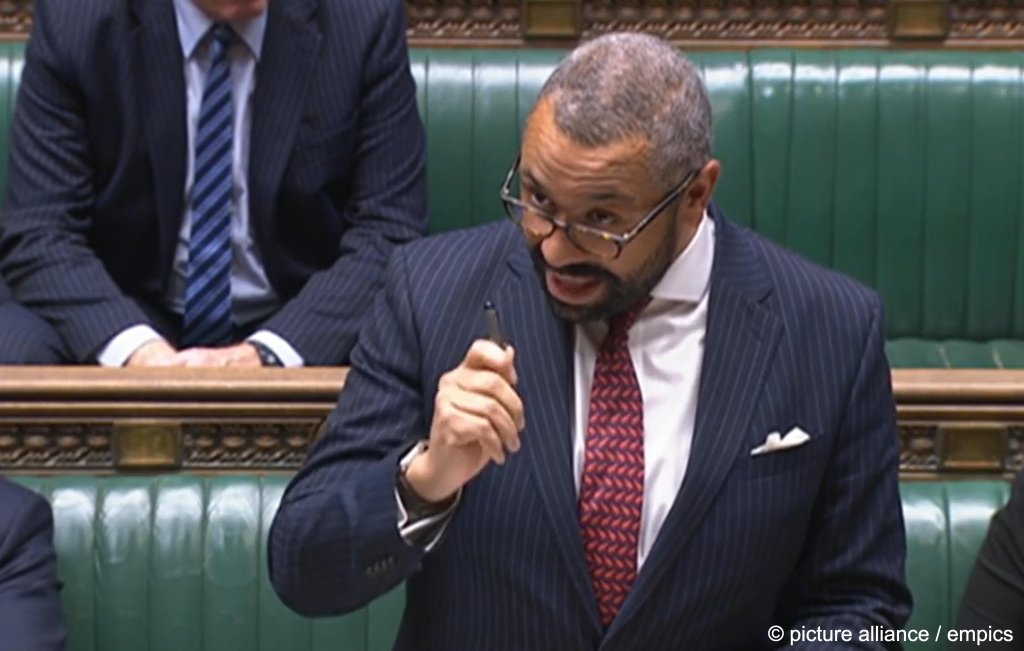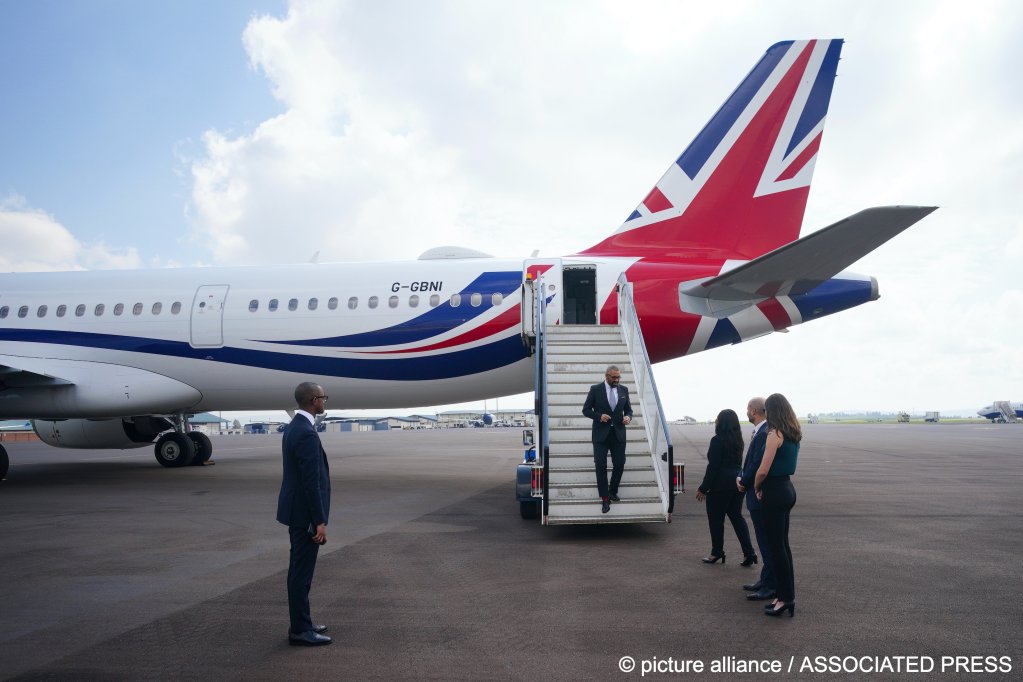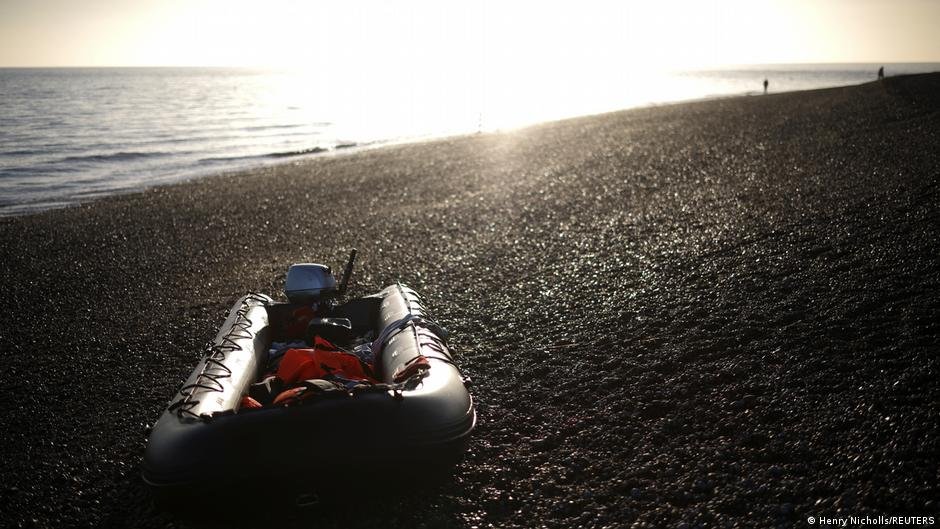The UK government claims it has cleared a backlog of 'legacy' asylum claims. But critics point out that tens of thousands of people are still awaiting a decision.
The UK government wants to clear the 'asylum backlog' – the thousands of asylum applications awaiting processing by the Home Office – so that it can bring down the cost of housing asylum seekers, which it says is about £8 million per day.
Prime Minister Rishi Sunak set a target of processing 92,000 claims for asylum dating from before June 28 2022, and pushed hard for this so-called 'legacy backlog' to be cleared by the end of last year.
On January 2 on the media platform X he announced that his mission had been accomplished.
Addressing the parliament, Home Secretary James Cleverly said the government had cleared the equivalent of 90,000 legacy claims, "the largest volume in two decades."
"The asylum backlog is now at its lowest point since December 2022," Cleverly added.
Also read: Backlog of asylum applications in the UK reaches record high
Over a year wait for asylum application response
The government's claims immediately came under fire, however. Critics pointed out that, according to Home Office figures released on January 2, more than 4,500 legacy claims had yet to be resolved. The shadow immigration minister called the claim that the backlog was cleared a "barefaced lie".
During parliamentary debates, Liberal Democrat MP Wendy Chamberlain said one asylum seeker in her constituency in Scotland (North East Fife) had had to wait a year for a decision on his claim.
Also read: PM starts election year with long shadow of immigration hanging over his head
Citing the Refugee Council, Chamberlain pointed out that 33,085 new applications for asylum had been lodged in the last six months alone, taking the place of the legacy claims cleared by Home Office and putting "ever more strain on a broken system."

Illegal Migration Bill backlog
A legal blog on immigration and asylum, Free Movement, breaks down the 98,599 asylum cases outstanding at the end of 2023 into three lists. Those related to the Nationality and Borders Bill, those related to the Illegal Migration Bill and now those related to the Illegal Migration Act. Each new piece of legislation passed or in progress has changed the rules and the process for people applying for asylum and each of those applications need to be considered, depending on when they were lodged, under the rules at the time of application.
The backlog relating to the Illegal Migration Bill began in March 2023 when the Bill was passed into law. On December 28, 2023 according to Free Movement, there were 38, 529 applications awaiting a decision.
The blog explains that part of the reason for the backlogs is that, under government rules introduced in 2022, there is an "inadmissibility process" which means the government can declare a person’s claim inadmissible if they are linked to what the government considers a "safe third country." To prove that the claim is inadmissible, the government has to consider the claim and then send it to the Third Country Unit.

This unit either agrees that the claim is inadmissible and issues the claimant with a notice that they will be removed to Rwanda, or refuses to accept it is inadmissible, at which point the claimant is thrown back into the standard asylum process, thus lengthening the wait for a decision on their application.
Waiting in limbo
Under the new rules there are no time scales of how long a person might wait to have a third country admit them, so they are left in limbo for longer and longer, according to Free Movement.
It notes that Home Office statistics published in November 2023 show that, between July 2022 and September 2023, 48,361 people were being considered under the inadmissibility process. Of those 15,995 have been issued with a notice of intent, but only two people have been removed.
Free Movement points out that since there is a "vanishingly tiny prospect of the cases ever being deemed inadmissible," the majority of these cases will be readmitted to the asylum system and then processed.
Based on current grant rates, the majority will be recognized as refugees and will be granted leave to remain in the UK.
Also read: Nearly 30,000 migrants crossed Channel to UK in 2023
Second backlog
According to Free Movement, a second backlog related to the Illegal Migration Bill constitutes people who applied for asylum between March 7 2023 and July 20, 2023. On December 28, 2023, this backlog comprised 22,448 applications.
"It seems most likely that the 500 or so people in this backlog who have had their claims decided are children," Free Movement editor Sonia Lenegan wrote.
The others are still in limbo somewhere in the so-called inadmissibility process.
The last part of the asylum backlog is made up of people who applied for asylum after July 20, 2023. Under the law, these people should be removed by the UK government because they entered the UK without permission, they traveled through a third country where they were not at risk and they do not have leave to enter or remain. This is known under the Illegal Migration Act as a "duty to remove."
Lenegan believes it is likely to apply to all 18,004 on the list. However, she notes that there is no sign of any caseworking being done for this backlog. In fact, the "number of applications shows a steady and substantial increase since then."
Remove the 'inadmissibility process'
Because they cannot be left in legal limbo for ever, at some stage they will be granted some form of leave to remain, according to Lenegan. The question is when. Meantime the government is instead concentrating on trying to get its latest iteration of the Rwanda Bill through parliament.

Lenegan says that if the government is really concerned about the costs of asylum accommodation, instead of banking on being able to send everyone to Rwanda "a far more realistic approach to reducing those costs would be to abolish the use of the inadmissibility process, which is achieving nothing but human misery and financial waste."
James Cleverly disagrees. During the debate in the House of Commons on Monday, he said that the Home Office was busy increasing the number of caseworkers to reduce not only the legacy backlog but also the current ones too.
